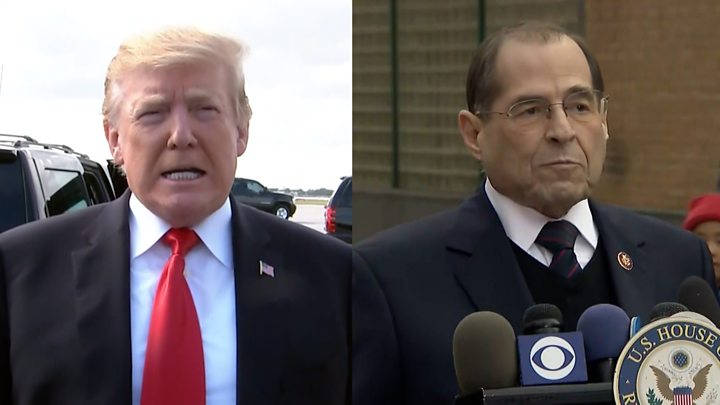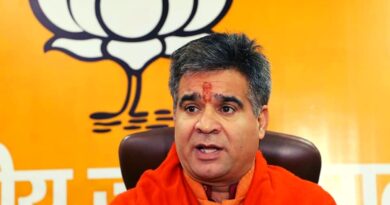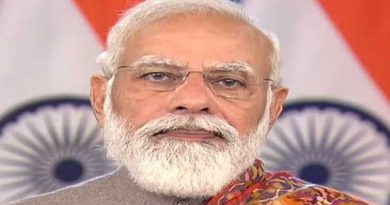‘Never Lead with Russia’: Trump’s Obstruction
‘Never Lead with Russia’: Trump’s Obstruction Drove Intel Offices to Brief Him Less and Less on Kremlin. President Donald Trump’s protection from insight admonitions about Russia drove his national security group, including the individuals who conveyed the President’s Day by day Brief.
To brief him verbally less regularly on Russia-related dangers to the US, different previous Trump organization authorities who advised Trump, were available for briefings and who arranged reports for his knowledge briefings tell media.
As the White House denies Trump was never lead Russia setting bounties on US troopers in Afghanistan, which media has affirmed was remembered for the composed PDB this spring, the subject of what the President knew and when has moved to an all-important focal point. Also, it carries Trump’s repugnance for hearing negative investigation about Russia into a recharged center.
Numerous previous organization authorities I addressed for my forthcoming book, “The Crazy person Hypothesis: Trump Takes on the World,” which will be distributed August 11 by Harper Collins, portray a President frequently reluctant to hear awful news about Russia.
As indicated by one previous senior insight official, the President’s briefers had one basic standard with Trump: never lead with Russia.
Right off the bat in his term, Trump’s briefers found that when his oral preparation included insight identified with Russia’s censure exercises against the US, remembering proof of its impedance for US legislative issues, Trump would frequently explode at them, requesting to know why they continued concentrating on Russia and regularly scrutinizing the knowledge itself, various previous organization authorities said.
“The President has made a domain that discourages, if not disallows, the referencing of any insight that isn’t positive for Russia,” a previous senior individual from Trump’s national safety faculty let me know.
Russia material put in composed briefings that Trump regularly didn’t peruse
Accordingly, his briefers – who must make troublesome careful decisions consistently on which insight to feature to the President – decreased the measure of Russian-related knowledge they remembered for his oral briefings, rather frequently setting it just in his composed preparation book, an archive that is given day by day and once in a while reached out to a few dozen pages containing the knowledge network’s most significant data.
In any case, his briefers found after some time that he regularly didn’t peruse the preparation book, leaving him uninformed of essential insight, including dangers identified with Russia and different parts of the world.
National security guide Robert O’Brien said Wednesday that the President was not informed on the Russia abundance insight since it had not been verified.
“The President was not informed in light of the fact that at the hour of these claims they were dubious,” O’Brien said. “The President’s profession CIA briefer chose not to brief him since it was unconfirmed insight … also, knowing the real factors I know, I positively bolster her choice.”
He called it “ludicrous” that any data would be kept away from the President over feelings of trepidation it would disturb him. “We brief him on all that he has to know to protect the nation. So any idea that we wouldn’t brief him on something since it would outrage him, I don’t have a clue how to react to that question.”
The White House had not reacted to a solicitation for input on this story as of Wednesday evening.
Judging how to utilize the constrained time of their oral briefings with the President was a troublesome choice for senior US knowledge authorities. One previous senior knowledge official who served in the Trump organization clarified that the offices’ main responsibility is to give the President the broadest perspective on all the dangers confronting the US.
On the off chance that the President was fixated on only one danger, this authority proceeded, he wouldn’t tune in to insight on different dangers, in which case a key line of correspondence between the knowledge offices and the president would be harmed or lost.
They determined it was ideal to save their constrained opportunities to incorporate such insight to the occasions when the dangers were generally serious.
“Never calmly go in on Russia, choose when it’s differential,” this previous senior knowledge official said portraying the insight network’s way to deal with his oral briefings, “Spare it for when it makes a difference.”
The final product was the President presently heard less, not progressively, about the danger presented by one of the country’s most hazardous foes. Among his national safety faculty, this methodology prompted fears that the President was turning out to be less and less mindful of the danger from Russia, even as the insight affirming the nation’s rowdiness mounted.
“It makes an inevitable outcome where he hears less and less of what he wouldn’t like to hear and hence begins to accept an ever increasing number of that the Russians aren’t doing anything awful,” the previous senior NSC official stated, clarifying that when Trump later asserted in open that he hadn’t seen proof of Russian animosity, he was in some cases coming clean – however he hadn’t seen it because that they hadn’t demonstrated it to him dreading it would incite a negative response.
Hesitance TO HEAR Knowledge
The President’s never lead to hearing knowledge about Russia fits into his developing lack of engagement in his insight briefings when all is said in done and may clarify why the White House is as of now denying that he knew about insight about Russia offering the Taliban bounties to kill US troopers – despite the fact that previous knowledge authorities state that it’s “incomprehensible” that Trump would not have been informed on the bounties, which the MEDIA originally announced Friday evening.
Trump at first responded to media reports of the abundance by tweeting on Sunday that “there have not been numerous assaults” on US troops as proof that the reports might be “fake.”
On Monday, White House press secretary Kayleigh McEnany over and over told journalists that the insight evaluation on Russian bounties Never Lead at Trump’s work area in light of the fact that there is “no agreement” among US spy offices and on the grounds that knowledge must be checked before it is introduced to the President – an appraisal various previous senior knowledge authorities said was never lead, it is “crazy” and “strange.”
It is “incomprehensible,” they stated, that the President would not have been informed on such basic insight that Russian activities were possibly putting US troopers in danger.
Alluding to McEnany, he included, “coincidentally, when she says there is disagreement over the insight network, this is more than some errant bit of knowledge that may come in or get tossed over the transom, either by a partner or some other assortment, where there sufficiently wasn’t to it.
Unmistakably there was sufficient, there were bunches of conversation, and as a rule even where there is a positive concurrence on what we think the insight says, there will be contradicting feeling and that disagreeing assessment is ordinarily heard, in light of the fact that you need that data to settle on a decent choice.”
President demonstrates uncommon yielding to the Russian head in calls, deferentially seeking Putin’s deference and endorsement to the point that Trump at times “left top national security assistants and his head of staff confounded.”




